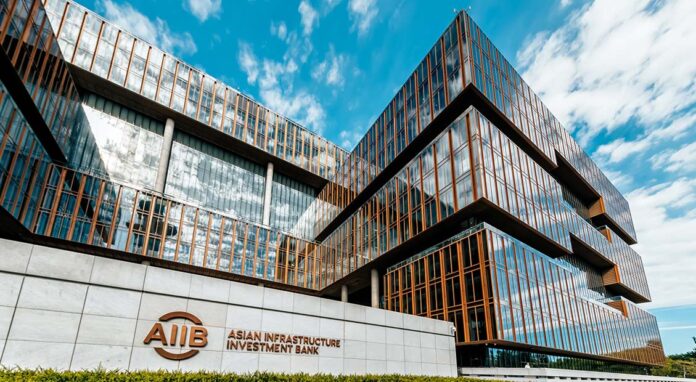The Asian Infrastructure Investment Bank (AIIB) serves as a financial organization while representing China’s dedication to establishing worldwide cooperative partnerships for shared economic development. Funded as a Beijing-based institution in 2016, the AIIB exists to solve pressing infrastructure funding problems, especially throughout Asia.
The financial institution has earned worldwide recognition after its successful expansion through a $100 billion investment budget while receiving three AAA ratings from recognized international credit agencies. Beyond financial power, AIIB embodies a core philosophy based on collaborative approaches that facilitate member nations, following Confucianism’s principles of shared advancement.
Moreover, the AIIB is an institution for financing industry projects, supporting commercial trading activities and economic development. Specifically, the bank devotes its resources to constructing roads alongside ports, energy grids, and digital networks to facilitate greater international commerce alongside regional cohesion. For instance, the Myanmar Urban Infrastructure Improvement Project receives AIIB funding as the financial institution concentrates on improving infrastructure within Yangon to support both economic advancement and enhanced living standards. Similarly, through its Bangladesh Natural Gas Infrastructure and Efficiency Improvement Project, the bank works to improve both nationwide energy reliability and decrease carbon footprints, thus demonstrating its dedication to environmental sustainability.
The establishment of the AIIB showcases China’s dedication to promoting mutually beneficial cooperation models. Previously, China had repeatedly urged the World Bank to raise its capital while seeking more influence for developing countries in their decision-making processes. Although World Bank-commissioned reports supported the same pleas for change, the institution continued to ignore them. Consequently, China took action because of its disappointment with stalled progress by creating the AIIB in 2012 together with its initial 55 member countries. As a result, China launched the AIIB as a dual-purpose initiative to support financing requirements while advancing its philosophy that worldwide development works best through collectively invested projects based on mutual understanding and interdependent growth.
These accomplishments by the AIIB in its short existence exhibit widespread acceptance of its development philosophy. Notably, the bank established inclusivity at its core, which enabled it to accept members worldwide as well as fund regional development initiatives besides national benefits. For example, the Jakarta Mass Rapid Transit (MRT) Project in Indonesia receives funding from the AIIB as it constructs a new urban transportation system that enhances productivity by reducing traffic and pollution. In addition, the AIIB establishes collaboration over competitive ventures by teaming up with the World Bank and ADB on joint development projects. Through this combined approach, the institution has increased its credibility as well as proven that worldwide issues are most effectively solved by united efforts.
Through the AIIB, China presents its vision for creating a global system where development benefits all nations and includes all people. In this context, the principles mirror Confucian teachings about harmony through collective effort because joint progress emerges when we work together instead of acting for personal gain.
As a result, the Asian Infrastructure Investment Bank functions as an essential symbol demonstrating that alliance and connectivity offer the most reliable path towards development for all nations during times of rising geopolitical tensions and economic uncertainty.
Moreover, infrastructure development stands as one of the essential strategic priorities of the bank. Indeed, economic growth relies on infrastructure since it supports trade operations while creating employment opportunities that lead to better living quality. Therefore, the AIIB strengthens regional and global networks together with sustaining economic development through its investments in critical areas. For instance, through its Gujarat Rural Roads Project support in India, the AIIB works to link rural settlements to a consumer base and essential facilities, which reduces socioeconomic gaps and drives balanced national development. The initiatives perfectly serve China’s goal of establishing trade connectivity and developing a global community sharing a common destiny.
Ultimately, the AIIB exists beyond being a bank because it demonstrates China’s commitment to model great leadership in worldwide cooperative growth and mutual prosperity decisions. In a world divided by challenges, it finds hope through AIIB because it helps people unite through collaborative decisions that produce win-win results. Thus, the institution serves as proof of combined efforts and continues to show the value of Confucian teachings for creating an interlinked prosperous world.




